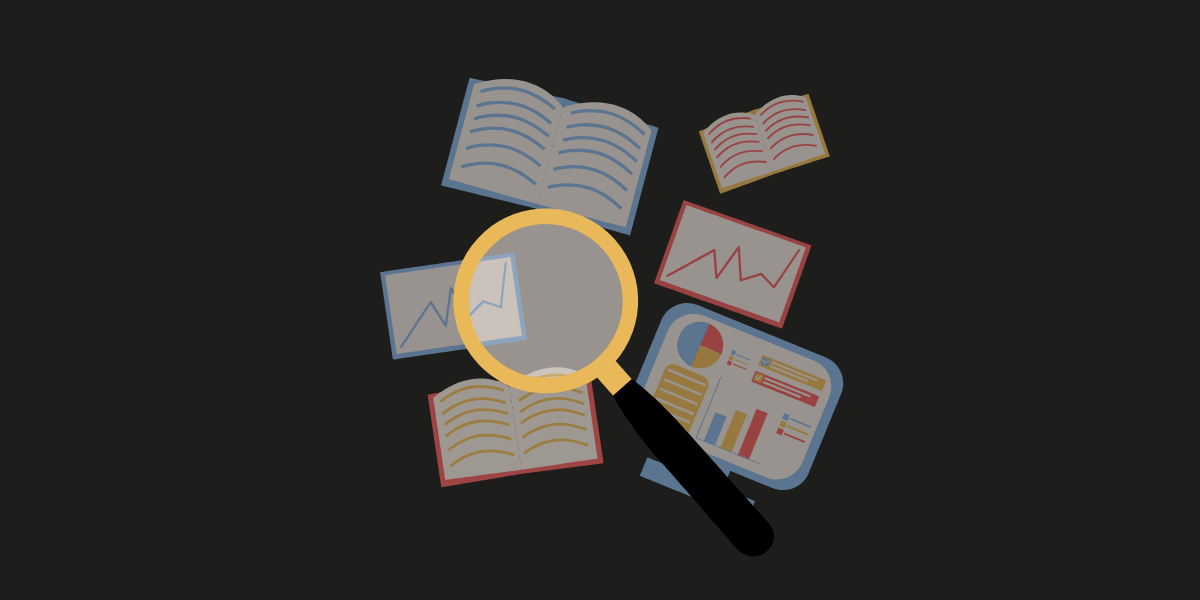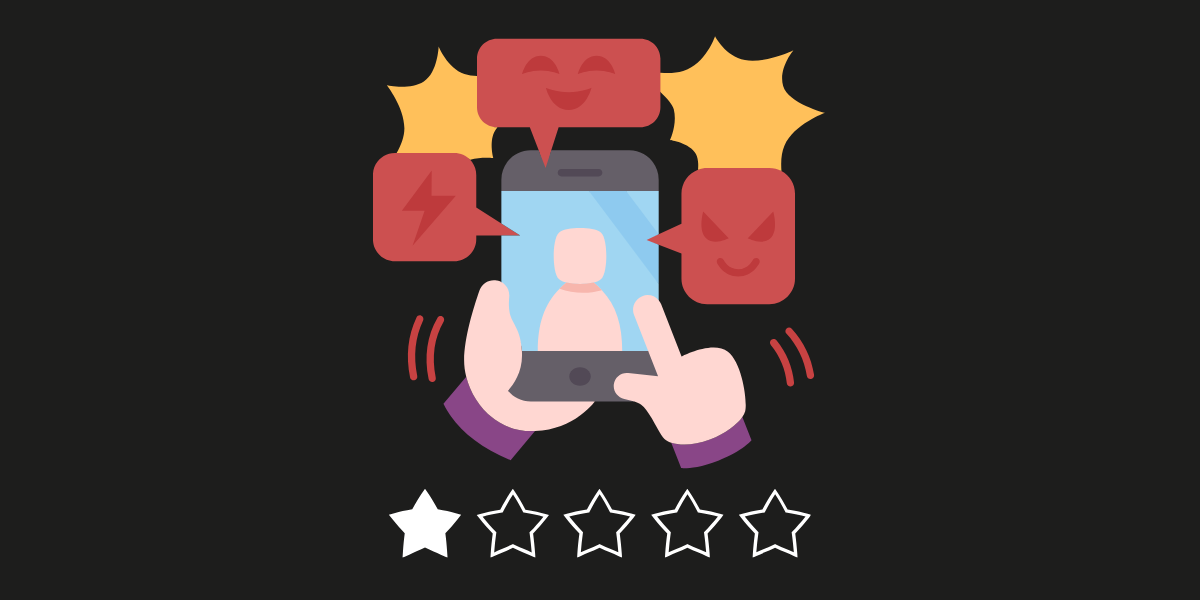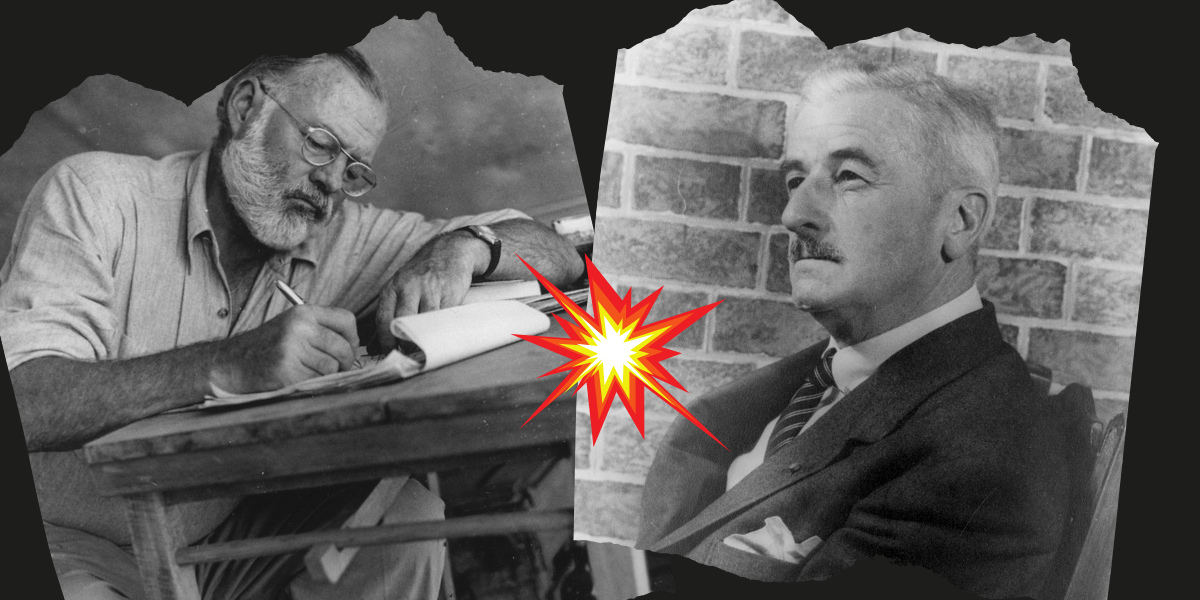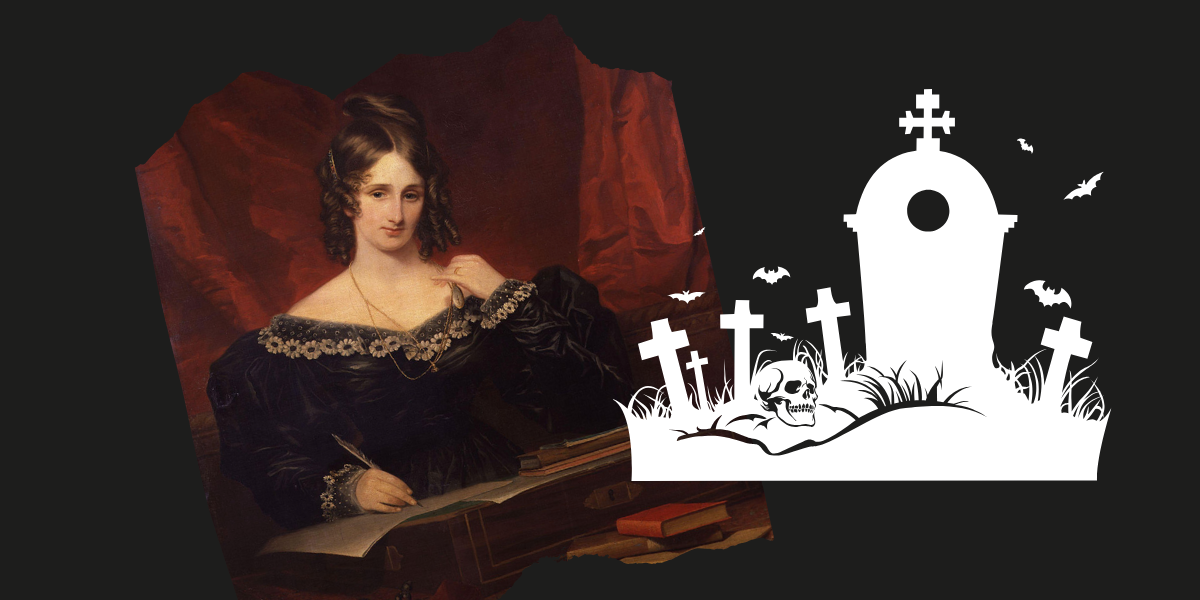We often think of writers as gentle, sensitive, thoughtful creatures. Whether it’s a best-selling author penning their latest masterpiece or a budding writer sharing their first stories online, you might picture someone sweetly sipping from a cup of tea and clickety-clacking on a typewriter from a cabin in the woods.
But writers, just like everyone else, are not perfect. We are by no means exempt from having beefs, stooping low in petty feuds, and, sometimes, behaving downright terribly.
As Anthony Arthur in his book Literary Feuds says, “We wonder how people who so vividly describe human failure (as well as triumph) can themselves fall short of perfection.”
From the shocking to the comical, let’s dive into the most-talked-about cases of authors behaving badly.
Modern Authors Behaving Badly

The Mysterious Author with Multiple Fake Identities
Readers and writers on Book Twitter (now X) are no strangers to drama and feuds. But this particular story is a sprawling labyrinth of catfishing, lies, and brownface.
Taylor Barton, a trans author of books including The Ninth Life, gained popularity on Twitter. Writing under several pen names including Taylor Brooke and Brooklyn Ray, Barton published science fiction, fantasy, paranormal romance, and erotica.
Now, there’s nothing wrong with or suspicious about writing under multiple pen names. Many authors who write novels and short stories in a variety of genres do this to separate their work for different types of readers or to create a sense of anonymity within particular genres. But the reason behind Barton’s use of pseudonyms turned out to be a little more sinister.
In 2020, members of the online literary community came forward with allegations of racism and bullying against Barton. In the wake of this, Barton issued a public apology, a promise to learn and change, and a receipt for a $500 donation made to the Trevor Project. Many pointed out, however, that the Trevor Project is not a PoC-specific organization, which undermined Barton’s apology after allegations of racist bullying.
Barton was then dropped from their publisher and took to their other Twitter account, under the pen name Brooklyn Ray, where the drama continued and their apology was all but retracted.
Later in 2021, sleuths started drawing comparisons between Taylor Barton and new author on the scene Jupiter Wyse. With similarities noticed between the pair’s home decor, astrology charts, and writing samples, the literary community dove into the drama again.
Anonymous user @AlertsBarton shared a thread on the connections between Taylor Barton and authors Hunter Barton, Stacey Anthony, and Freydís Moon too. Not only did Taylor Barton appear to be using multiple fake identities but, as Freydís Moon/Jupiter Wyse, they were masquerading as a Latinx person of color.
This led to accusations of not only catfishing but also brownface (where a white person pretends to be a brown-skinned person) in what seemed to be an attempt to escape the condemnation Barton experienced in the wake of earlier racism allegations. Jupiter Wyse was subsequently dropped by their agent, too.
With so many layers to this story, Twitter users conducted their own in-depth investigations (one created a 69-page Google Doc on the topic), and book YouTubers dissected the story in detail, too.
In terms of Book Twitter drama, this one takes the cake.

Bad Reviews, Catfishing, and Even Stalking?
Writer and journalist Kathleen Hale is the author of YA murder mystery novels and one essay collection called Kathleen Hale is a Crazy Stalker. The drama that unfolded upon the release of Hale’s debut novel is a story stranger than fiction.
When preview copies of No One Else Can Have You were sent out to popular book bloggers, Kathleen Hale was warned: don’t look at – and certainly don’t comment on – Goodreads reviews. In an article she wrote for the Guardian, Hale said, “Writing for a living means working in an industry where one’s success or failure hinges on the subjective reactions of an audience.” She knew it was a bad idea to pour over reviews of her book online. But she couldn’t resist.
Hale found a scathing one-star review from book blogger Blythe Harris who said, “I think this book is awfully written and offensive; its execution in regards to all aspects is horrible and honestly, nonexistent.” Based on comments on the platform, Harris’s review appeared to influence other reviews and discourage others from reading the book at all.
Hale began obsessing over this review – and became obsessed with Harris herself. She “ate a lot of candy and engaged in light stalking,” scrolling through Harris’s Instagram and Twitter, reading her other reviews, and even studying photos of the stranger’s baked goods and vacations. As she became more invested in Harris’s online persona, she started finding discrepancies and suspected that Harris was a catfish. Eventually, Hale got “good-naturedly drunk” and responded to Harris’s review, offending book bloggers in the process, and Book Twitter exploded. Hale tried to resolve the drama but only dug herself a deeper hole.
Sure that she’d been trolled by someone using a fake identity, Hale paid for a background check to find out and even tracked down an address linked to Harris. She booked a rental car to drive to Harris’s home and meet her face-to-face.
Hale’s article about her experience generated over 900 comments on the Guardian with many criticizing her for invading Harris’s privacy and even accusing her of romanticizing stalking. Unsurprisingly, the literary community served up some serious backlash about the whole charade.
For writers and aspiring authors, it’s easy to empathize with Hale’s struggle to stay off Goodreads. Trying to avoid reviews of a book you’ve put your heart and soul into must feel like trying to ignore an itch you’re dying to scratch. And discovering one-star reviews right off the bat must sting. But digging into a reviewer’s identity, contacting them by phone without consent, and showing up at their home unannounced is inexcusable.
Historical Examples of Authors Behaving Badly

Ernest Hemingway’s Beef with William Faulkner
Literary feuds long pre-date Book Twitter and BookTok. Even Hemingwrite’s namesake engaged in spats with fellow authors.
It’s safe to say that William Faulkner, author of masterpieces like The Sound and the Fury and As I Lay Dying, didn't love Ernest Hemingway’s understated writing style. AE Hotchner, Faulker’s biographer, told Hemingway, “Mr Faulkner said you never crawl out on a limb. Said you had no courage, never been known to use a word that might send the reader to the dictionary.”
Unsurprisingly, Hemingway took offence. He replied, “Poor Faulkner. Does he really think big emotions come from big words? He thinks I don’t know the ten-dollar words. I know them all right. But there are older and simpler and better words, and those are the ones I use.”
To add more salt to the wound, Hemingway said, “Did you read his last book? It’s all sauce-writing now, but he was good once. Before the sauce, or when he knew how to handle it.”
If Book Twitter had been around in Hemingway’s day, readers would’ve grabbed their popcorn for this one. We all would have been waiting with bated breath for the next series of subtweets to escalate into a full-blown temper tantrum.
Who would have come out on top? With his scathing retort and sassy insults, my money’s on Hemingway.

Mary Shelley’s Macabre Adventures in Gothic Love
In the pre-internet literary world, it wasn’t just the men behaving badly. Mary Shelley, author of Frankenstein, had a rebellious streak too. In fact, it’s alleged that Shelley lost her virginity on her mother's grave.
Wild rumors like this about historical figures are often dismissed as just that – rumors. But when you think about it, it’s actually quite on brand for the mother of gothic horror. And scholars believe Shelley didconsummate her relationship with her soon-to-be husband, poet Percy Bysshe Shelley, on the ground where her beloved and pioneering mother was laid to rest just 10 days after giving birth to her.
One of those scholars is Charlotte Gordon, author of Romantic Outlaws: The Extraordinary Lives of Mary Wollstonecraft and Mary Shelley, who said it’s “traditionally accepted” that this rumor is, in fact, true.
“According to a letter Percy wrote, it’s there she declared her love for him…” Gordon says. “We don’t know how far they went. But they always referred to that day as his [Percy’s] birthday.”
Clearly fans of the romantic macabre, the Shelleys’ graveyard adventures could’ve given Gomez and Morticia Addams a run for their money.
Consummating a relationship atop a grave would probably be considered an insult in civilized society, a big “eff you” to the deceased below. But something tells me this wasn’t Shelley’s intention.
Shelley’s mother’s grave was a big part of her childhood. It was near her home and the family would visit often when she was growing up. It’s also said she learned to read there by tracing the letters on her mother’s gravestone and reading her mother’s work. The albeit weird decision to lose her virginity on this spot may actually have been Shelley’s way of honoring her late mother, the mother she never met but desperately wanted to connect to.
I could probably think of other, less creepy ways to pay homage to the dearly departed but, hey, each to their own.
The Literary World Has Always Thrived On Drama
Sure, the book dramas, salacious stories, and author feuds online are juicy and often just plain appalling. But it’s with the help – or, rather, hindrance – of the internet and social media that they went viral.
Our hyper-connected literary communities can give ordinary people the platform to find success and critical acclaim that people in centuries past couldn’t fathom. But this always-online world can also set the stage for authors’ dirty laundry to be aired – and rehashed, analyzed, and reignited over and over again.
Social media might amplify the drama but don’t be fooled. There have always been authors behaving badly.





















